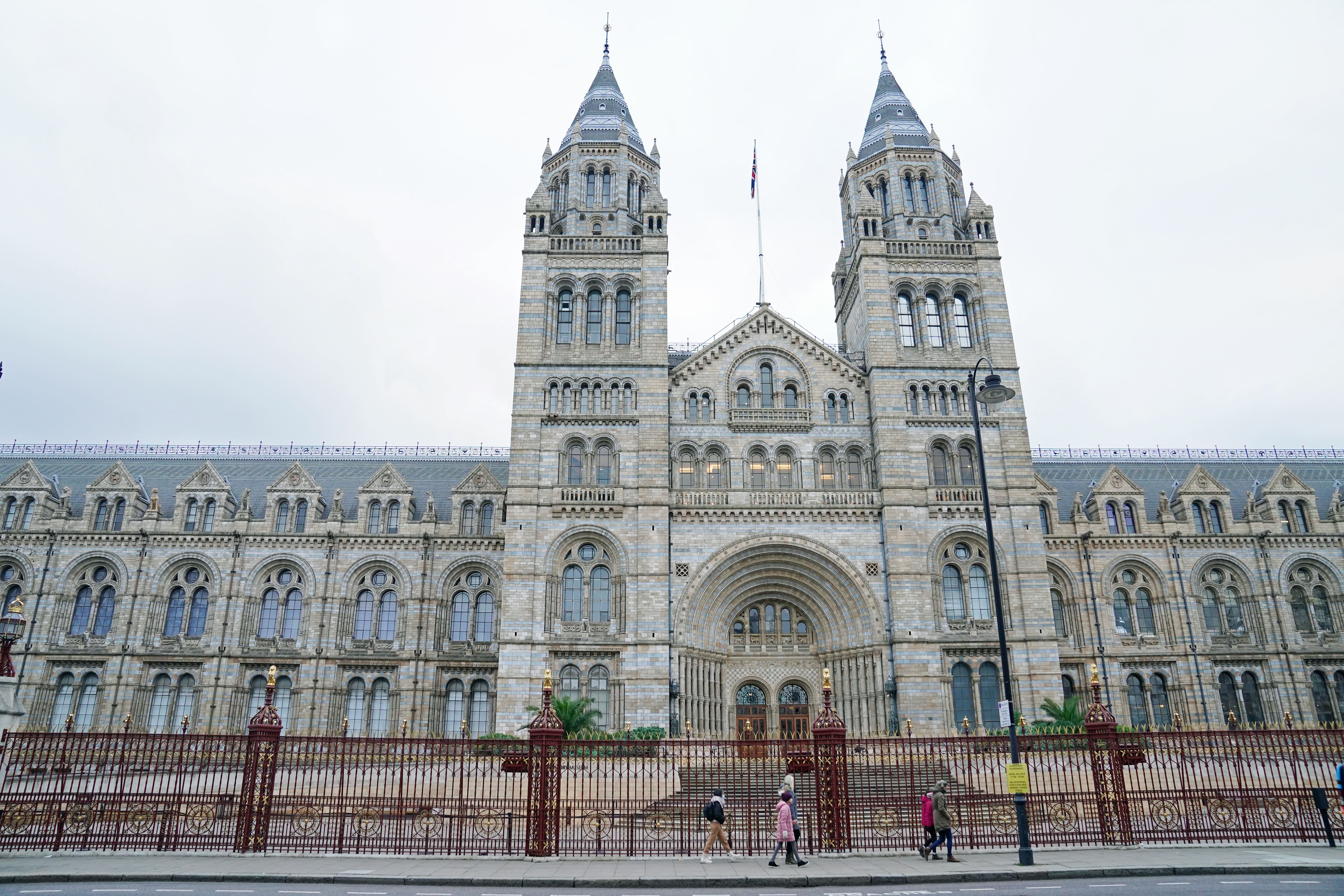Funding for research tools that could halt future pandemics announced
The digitisation of Natural History Museum specimens is one of five projects unveiled by Science Secretary Michelle Donelan.

Your support helps us to tell the story
From reproductive rights to climate change to Big Tech, The Independent is on the ground when the story is developing. Whether it's investigating the financials of Elon Musk's pro-Trump PAC or producing our latest documentary, 'The A Word', which shines a light on the American women fighting for reproductive rights, we know how important it is to parse out the facts from the messaging.
At such a critical moment in US history, we need reporters on the ground. Your donation allows us to keep sending journalists to speak to both sides of the story.
The Independent is trusted by Americans across the entire political spectrum. And unlike many other quality news outlets, we choose not to lock Americans out of our reporting and analysis with paywalls. We believe quality journalism should be available to everyone, paid for by those who can afford it.
Your support makes all the difference.Researchers around the world will soon have access to millions of historical specimens found in UK museums as part of a £473m UK fund to enhance research infrastructure.
The information will be available at the click of a button, illuminating the secrets of the world’s rich history and helping to solve some of the most urgent issues of today.
These samples are key to scientific breakthroughs like preventing future pandemics and protecting the planet.
From digitising millions of specimens to help halt future pandemics, to building the most powerful microscope of its type right here in the UK... our £473m investment infrastructure will set the conditions that allow our brightest minds to thrive and build a healthier and more prosperous UK
The digitisation of samples is one of five projects unveiled by Science Secretary Michelle Donelan at the Natural History Museum.
More than £155m from UK Research and Innovation’s Infrastructure Fund will support the museum’s Distributed System of Scientific Collections (DiSSCo).
It will digitise most of the UK’s 137 million natural science specimens – some of them billions of years old – so that teams in the UK and around the world can access key detailed data at their fingertips.
The process involves capturing images of a specimen such as a pinned insect, or microscope slides of samples like micro-fossils and logging them with key data like when and where it was collected.
The move could support research into solutions for major global problems like supporting biodiversity and protecting countries against future pandemics, and is expected to generate around £2 billion of economic benefits for the UK.
A further £124m will go towards building the most powerful high energy electron microscope in the world – the Relativistic Ultrafast Electron Diffraction and Imaging (RUEDI) facility in Daresbury, Cheshire.
From improving our understanding of the structure of matter itself to digitising the country’s collections of natural specimens, these projects will strengthen the UK community’s quest for discovery and innovative applications
This will enable UK researchers to observe and understand irreversible ultrafast processes as they happen.
Ms Donelan said: “From digitising millions of specimens to help halt future pandemics, to building the most powerful microscope of its type right here in the UK to improve drug design, to better information sharing between labs, our £473m investment infrastructure will set the conditions that allow our brightest minds to thrive and build a healthier and more prosperous UK.”
Professor Mark Thomson, executive chairman for the Science and Technologies Facilities Council and Infrastructure Champion for UKRI, said: “Through these investments UKRI continues to equip the research and innovation community with the tools it needs to explore and develop the science and technologies needed for the coming decades.
“From improving our understanding of the structure of matter itself to digitising the country’s collections of natural specimens, these projects will strengthen the UK community’s quest for discovery and innovative applications.”
A joint project with the United States Department of Energy will see more than £58m go towards developing new infrastructure that will address questions on the nature of matter.
It will be built by Science and Technology Facilities Council laboratories in Daresbury and Oxfordshire, before being installed at the Electron-Ion Collider (EIC) at the Brookhaven National Laboratory in New York.
Separately, nearly £50m will go towards Critical Mass UK (C-MASS) – the creation of a network linking laboratories using mass spectrometry, a technique that identifies the characteristics of molecules.
A further £85m will also be put into UKRI’s Digital Research Infrastructure (DRI) programme for critical improvements in digital services to support researchers and innovators across the UK.